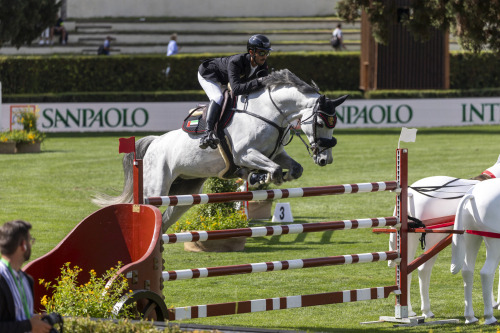At this week’s FEI Sports Forum in Lausanne, Switzerland, the notion of three-rider teams for the 2020 Olympics was heavily promoted as the future of the sport. The change was given further credence when the FEI Bureau concluded yesterday it should be teams of three and one individual per nation for the Olympics and the World Equestrian Games. The Bureau asked the Technical Committees to finalise their proposals in that direction to be submitted to national federations prior to a vote at the FEI General Assembly in Tokyo (the 2020 Olympic city) next November. The consensus is that the proposal is almost assured of being passed by the assembly. Also guaranteed though is the issue’s divisiveness in the run-up, as, while officialdom is seemingly in favour of the change, those directly affected, ie riders, are utterly opposed. FEI first vice-president John Madden spoke at the forum of how three-member teams would bring in more nations across the Olympic disciplines, as well as at the World Equestrian Games. “Universality we have control over,” he said. “It’s simple math. We have 200 spots and 40 National Olympic Committees at the moment. With the proposals on the table, we still have 200 spots and we can increase the number of flags to about 55. Three per team gets us 25% more.” According to the FEI, “There was general agreement about the importance of bringing in new nations to the Olympic Games,” FEI Executive Board member Frank Kemperman said: “I agree 100% how important it is for smaller nations to have athletes at the Olympic Games. “It is the best shop window for our sport.” The above are obvious arguments. Laudable as they are, they also fulfill the Olympian tenet that the Games should be about inclusivity. However, the practicality of the proposal warrants close inspection. Its impact will vary to some degree on each of the three disciplines: Show jumping, eventing, and dressage. Crucial is the loss of a discard score. If, for example, in eventing, a horse is in difficulty on the cross-country, will the rider be pressurised to complete, a situation that will fly in the face of the FEI’s claim of prioritising horse welfare.
After the FEI Sports Forum Olympic officials look to cut numbers
-
categories: Olympics



